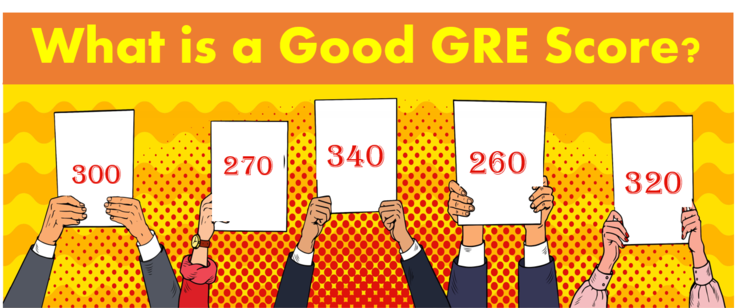What is a good GRE score?
What is a good GRE score?
As a GRE test-taker, and a postgraduate or a Ph.D. aspirant, the question of what a good GRE score is would have crossed your mind multiple times. Really, how much should you score? Should you aim for a 320+?
A quick and simple answer to the question above is that your target score should depend on the universities to which you are applying. Understand that there is a range of courses available and that the number of universities offering postgraduate and Ph.D. programs has increased multifold, increasing the amount of research that you would need to do pick both the right university and the right course. There is no hard and fast rule that only students who score above 320 get an admission. Your admission depends on a lot of other factors, apart from the GRE score.

How is the GRE scored?
The GRE consists of 3 sections: Verbal, Quant, and AWA. It is rather simple to understand the scoring pattern of the GRE:
- Verbal Section: 130-170 (1 point increments)
- Quant Section: 130-170 (1 point increments)
- AWA: 0-6 (0.5 point increments)
The information above means that the lowest you can be scored on the GRE is 260 in the Verbal and the Quant section together, and the highest is 340.
Ace your GRE prep with the best: @GREKing
Understanding Percentiles
Most competitive exams, including the GRE, use a percentile measure to understand where you lie with respect to all the students taking the exam. A 90th percentile would mean that you score more than 90% of the candidates who have taken the exam. This puts your score into perspective and gives you a ranking. Percentiles are sometimes more important than your scores, but these go hand in hand. Better your score, higher your percentile.
GRE Score: An overview
In order to understand how the GRE scores have varied over the different fields of study, we encourage you to take a look at the following link:
Parameters to consider
-
Your university and your target score
Universities have cut-offs, and knowing these can help you frame your routine. Communicate with the university over email, or calls and find out what score you need to get into a particular course.
-
Score considerations
Depending upon the course that you are applying for, universities may give more weight to either your holistic score or a particular sectional score. Remember that there are cut offs for the AWA section as well.
As we have already mentioned, the GRE score is one component of your overall application. A well-rounded application showcases good undergraduate projects, probably work experience, consistent GPAs, and other extracurricular activities. These are indicated in your transcripts, letters of recommendation, certificates and statement of purpose.
All the best with the GRE and your future!
















Leave a Reply
You must be logged in to post a comment.